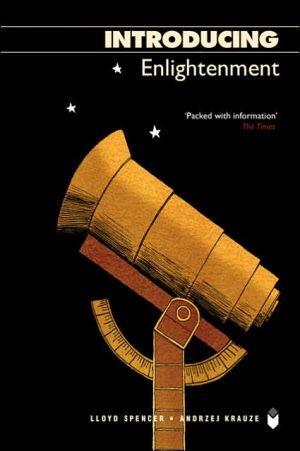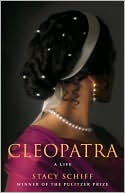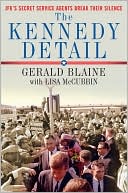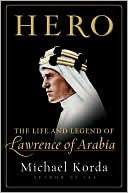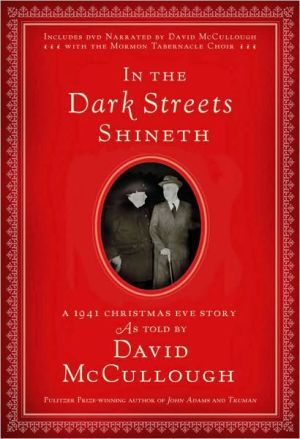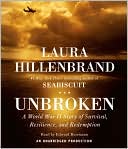Introducing the Enlightement
The book focuses on three of the giants of the Enlightenment - Voltaire, Diderot and Rousseau - but also in the cast are David Hume, Adam Smith, Samuel Johnson, Immanuel Kant, Benjamin Franklin and Thomas Jefferson.
Search in google:
The book focuses on three of the giants of the Enlightenment - Voltaire, Diderot and Rousseau - but also in the cast are David Hume, Adam Smith, Samuel Johnson, Immanuel Kant, Benjamin Franklin and Thomas Jefferson. School Library Journal Gr 10 UpThis is not a cursory overview of 18th-century Europe; rather, it is a skillful introduction to the individuals, events, accomplishments, and concepts that defined the age. Readers new to this series might be fooled by the relatively small amount of text and the pen-and-ink drawings on every page. The format, however, is designed to make a rather formidable subject less intimidating and more appealing. A new topic is introduced on every page or two, such as "The Philosophes" or "Rousseau's Challenge." Each entry is succinctly explained, often with accompanying quotes, and is illustrated. Important names, words, and phrases are in boldface. Keeping track of the various concepts and the beliefs and accomplishments of numerous individuals can be confusing, and there is no index to help readers refresh their memories as they move through the complex interrelationships. Nevertheless, the material is presented in a straightforward, engaging style that remains interesting and informative throughout.Marilyn Heath, Greenwood High School, SC
\ \ \ \ Chapter One\ \ \ Let There Be Light ...\ \ \ The Enlightenment was an intellectual current that galvanized Europe during the course of the 18th century. Centred in Paris, it spread itself across the whole of Europe to the American colonies. Networks of writers and thinkers gave the 18th century a remarkable intellectual coherence.\ \ \ In all\ of the major\ European tongues,\ the age knew itself as\ one of light: the\ Enlightenment, l'age\ des lumières, die\ Aufklärung,\ illuminismo.\ \ \ \ The intellectuals of the Enlightenment felt themselves to be part of a great movement representing the highest aspirations and possibilities of mankind. They were reformers who believed their cause was best served by the new passion for argument, criticism and debate.\ \ \ The Radiance of the Absolute Monarchs\ \ \ In France, the reigns of the Absolutist monarchs, Louis XIII (1601-43), Louis XIV — the "Sun King" — (1638-1715), Louis XV (1710-74) and Louis XVI (1754-93) made Paris the cultural capital of the world and, at the same time, created both an audience and a target for the reforming zeal of the French Enlightenment.\ \ \ The Enlightenment spoke French, literally its lingua franca. Anything published in French was immediately accessible to educated society all over Europe. Important works not originally written in French were soon translated into the universal language. Across the world "men of letters" declared themselves to be the disciples of French writers.\ \ \ Paris, the Capital of theEnlightenment\ \ \ This was as true for David Hume and Adam Smith from Scotland as it was for Benjamin Franklin and Thomas Jefferson from the American colonies, or Cesare Beccaria from Milan. They knew they had "arrived" when they were accepted in the salons of Paris.\ \ \ In all of continental Europe, court society and the wealthy bourgeoisie looked to France as the model of taste.\ \ \ A Sussex landowner wrote to his son. "A man who understands French may travel all the World over without hesitation of making himself understood, and may make himself perfectly agreeable to all Good Company, which is not the case of any other Language whatever."\ \ \ Beginnings of the Light\ \ \ "There is a mighty light which spreads itself over the world, especially in those two free nations of England and Holland, on whom the affairs of all Europe now turn." Lord Shaftesbury's letter to Le Clerc, 6 March 1706\ \ \ For much of the 17th century, Holland was the most liberal country in Europe. Amsterdam provided a refuge for freethinkers and religious dissidents of all kinds. In 1667, the English philosopher John Locke (1632-1704) composed an Essay on Toleration. He had been closely associated with Protestant plotters against the rule of the Catholic King James II (1633-1701).\ \ \ There Locke concentrated on his major works, his Essay Concerning Human Understanding and Two Treatises of Government. Both books were to remain central to the debates that raged throughout the Age of Enlightenment.\ \ \ England's "Glorious Revolution"\ \ \ Continued resistance to James II's pro-Catholic activities caused the English parliament to invite the Dutch Protestant, William III of Orange (1650-1702) and his English wife Mary II (1662-94), to take over the English throne. They sailed from Holland and did so in the bloodless — hence "Glorious" — Revolution of 1688.\ \ \ This definitively established the sovereignty of the English parliament and gave England a "Bill of Rights". Other reforms soon made England the most free and liberal country in Europe. The Toleration Act (1689) allowed most Protestant Dissenters, including such sects as the Quakers, to worship freely, but not to hold public office. The Church of England lost its monopoly of religious worship and education, and the last vestiges of its control over the press in 1695.\ \ \ An Age of Revolutions\ \ \ The two great cosmopolitan capitals, Paris and London, both grew dramatically during the 18th century. But England's commercial muscle meant that London progressed much more. During the first half of the century, England experienced an agricultural revolution. In the latter part of the century, the industrial revolution gained pace.\ \ \ IN 1776, THE AGE DREW TO A CONCLUSION WITH A REVOLUTION AGAINST ENGLAND BY ITS AMERICAN COLONISTS.\ \ \ IN 1789, THE UPHEAVAL OF THE FRENCH REVOLUTION FINALLY CHANGED EVERYTHING.\ \ \ These revolutions attempted to put the principles of the Enlightenment into practice.\ \ \ Coffee-houses, Social Clubs and Journalism\ \ \ This was also an age of public sociability and a journalism of ideas. Coffee-houses were the focal point of intellectual life in London. By 1740, there were more than 400 in the area of Westminster alone. The new Bank of England and the East India trading company used coffee-houses. Lloyd's coffee-house in 1691 became Lloyd's of London, the centre of marine insurance.\ \ \ COFFEE-HOUSES WERE VENUES TO TRADE IDEAS AND COMMODITIES.\ \ \ NEWSPAPERS AND JOURNALS WERE AVAILABLE, BOOKS AND CONCERTS WERE ADVERTISED.\ \ \ AND THERE WAS A RAGE TO JOIN CLUBS AND SOCIETIES FOR EVERY SORT OF INTEREST - SCIENTIFIC, ARTISTIC AND POLITICAL.\ \ \ Locke's "Tabula Rasa"\ \ \ Throughout the 18th century, the essential book for philosopher and non-philosopher alike was John Locke's Essay Concerning Human Understanding (1690). For almost all of the thinkers of the Enlightenment, one philosophical tenet held peculiar authority, This was Locke's tabula rasa dogma that there are no "innate" ideas and that all knowledge is derived from experience.\ \ \ "Let us then suppose the mind to be, as we say, white paper, void of all characters, without any ideas; how comes it to be furnished? Whence comes it by that vast store which the busy and boundless fancy of man has painted on it with an almost endless variety? Whence has it all the materials of reason and knowledge? To this I answer, in one word, from experience."\ Locke's empirical view was aimed specifically against the Rationalism of René Descartes (1596-1650).\ "There are ideas (for instance those of God, Mind, Body, or the Triangle) whose truth may be recognized by the light of reason alone and could thus be called "innate".\ \ \ Locke's empiricism distinguished two different kinds of experience: external sensation and internal reflection.\ \ \ In France, Locke's philosophy was popularized by Etienne Condillac (1715-80), whose Essai sur l'origine des connaissances (1746) stressed the role of sensory impressions or sensations.\ \ \ This "sensationalism" is deemed consistent with the materialist and determinist view of human nature developed by other philosophes such as La Mettrie and d'Holbach.\ \ \ Locke himself had stressed the role of reflection and recognized the role of mental faculties. In addition, he believed in our innate tendency to seek pleasure and avoid pain. These aspects were downplayed by Condillac.\ (Continues...)
\ School Library JournalGr 10 UpThis is not a cursory overview of 18th-century Europe; rather, it is a skillful introduction to the individuals, events, accomplishments, and concepts that defined the age. Readers new to this series might be fooled by the relatively small amount of text and the pen-and-ink drawings on every page. The format, however, is designed to make a rather formidable subject less intimidating and more appealing. A new topic is introduced on every page or two, such as "The Philosophes" or "Rousseau's Challenge." Each entry is succinctly explained, often with accompanying quotes, and is illustrated. Important names, words, and phrases are in boldface. Keeping track of the various concepts and the beliefs and accomplishments of numerous individuals can be confusing, and there is no index to help readers refresh their memories as they move through the complex interrelationships. Nevertheless, the material is presented in a straightforward, engaging style that remains interesting and informative throughout.Marilyn Heath, Greenwood High School, SC\ \
